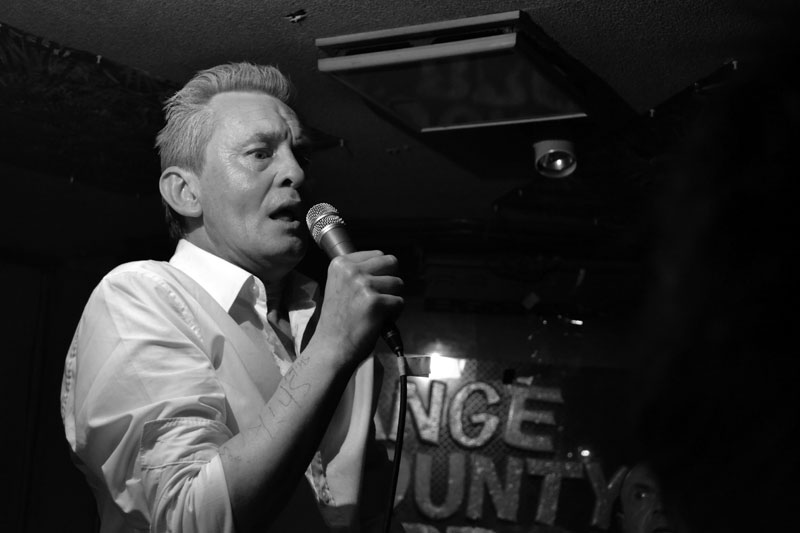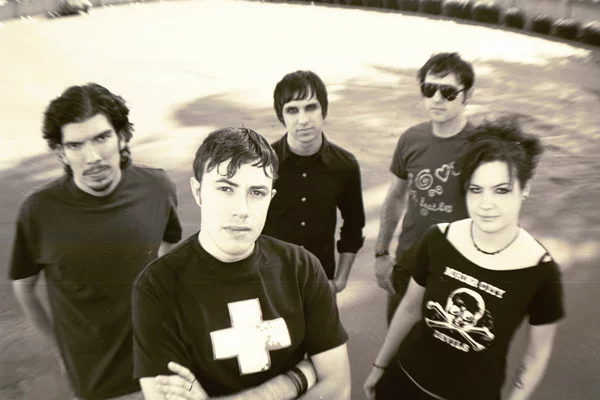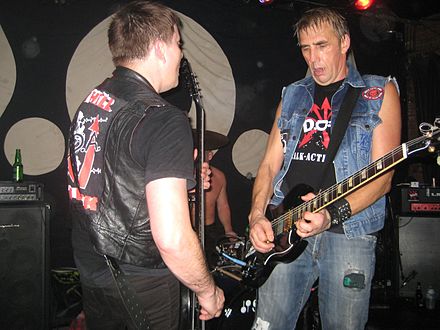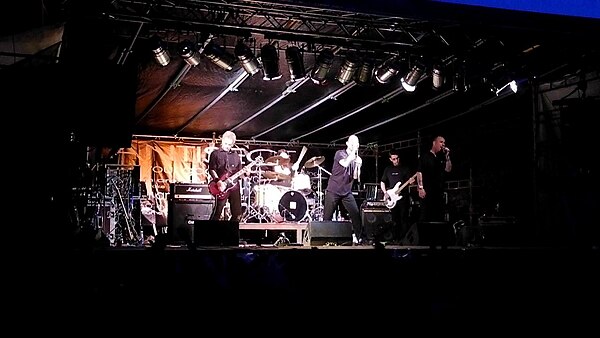Neon Hearts

Neon Hearts etched their name in the annals of punk rock history as the trailblazing punk band hailing from Wolverhampton, a city that witnessed the fervor of the punk movement between 1977 and 1981.
Steve Heart, a pivotal figure in the band’s formation, initiated the journey in the vibrant summer of ’77. The inaugural lineup boasted a formidable assembly: Steve, his cousin Paul Raven handling bass duties, Keith Allen on drums, and Martin Ratcliffe wielding the guitar. A serendipitous encounter with solo singer Tony Deary, later known as Tone Dial, added the final brushstroke to their artistic canvas.
Their genesis led to the release of a double A-sided single, “Regulations” and “Venus Eccentric,” on December 1, 1977, under the imprimatur of their own label, Neon Hearts Records. In the backdrop of burgeoning record company interest, the band faced challenges when they inked a deal with Satril, a satellite of WEA, in May 1978.
The label’s attempt to steer them toward a ‘funky’ direction and submit material for the Eurovision song contest marked a turbulent phase. Despite these hurdles, Neon Hearts persisted, self-promoting their single “Answers” through live performances.
The Satril era saw the band recording demos at PYE Studios in London, where creative clashes culminated in the release of “Answers” in July 1978, overshadowing the band’s preference for “Popular Music.” A TV appearance on Look! Hear! in January 1980 showcased “Popular Music” and the unreleased gem “Synchronisation.”
The band went through iterations, recording a John Peel Session at Maida Vale Studios in London in 1980, but eventually disbanded.
The Neon Hearts narrative, however, saw a resurgence in late 1980 when Steve and Tony spearheaded a revival. Tony ventured into a side project, Silhouette Theatre, releasing the EP “You Keep Coming Round.” The band continued to evolve, culminating in the creation of new tracks, “Retrograde” and “Heart of Darkness,” in August 2002.
Tragedy struck in October 2007 with the untimely demise of bassist Paul Raven, a luminary known for his contributions to bands like Killing Joke, Prong, and Ministry. Neon Hearts left an indelible mark, with a compilation CD, “Ball & Chain,” released in 1997, followed by the reissue of “Popular Music” in CD format in 2002.
Japan embraced Neon Hearts with a tribute CD in 2011, a testament to their enduring legacy. The band’s journey extended into 2014 with the release of the EP “Dangerous Planet” and a Japan tour, marking another chapter in their tumultuous but compelling saga. The ebb and flow of Neon Hearts’ existence reflect the resilience and impact of a band that not only contributed to the punk rock soundscape but also left an everlasting imprint on global music.
History
Formation and Early Years (1977-1978): Neon Hearts, born in the crucible of Wolverhampton’s punk scene, was founded by Steve Heart in the vibrant summer of 1977. The initial lineup, including Paul Raven, Keith Allen, Martin Ratcliffe, and the later addition of Tony Deary, laid the foundation for their punk journey. The release of their debut double A-sided single in 1977 marked their emergence into the music scene.
Satril Years and Challenges (1978-1980): The band signed with Satril in 1978, facing creative differences and label interventions. The release of “Answers” in 1978 and subsequent struggles with Satril set the stage for a tumultuous period. Despite internal conflicts, Neon Hearts persevered, leaving an indelible mark on the evolving punk landscape.
Reformations and Continued Impact (1980-2014): The band experienced multiple reformations, recording a John Peel Session in 1980 and resurfacing in 1980 and 2014 with new material. The tragic loss of bassist Paul Raven in 2007 marked a poignant chapter in their history. Despite intermittent breaking up, Neon Hearts remained an influential force in punk, leaving a lasting legacy.
Discography
Singles
- “Regulations”/”Venus Eccentric” (1977) – Neon Hearts Records
- “Answers” (1978) – Satril
- “Popular Music” (1978) – Satril
Albums
- “Popular Music” (1979) – Satril
- “Popular Music” (2002) – Overground Records reissue
Compilations
- “Ball & Chain” (1997) – Overground Records
- Neon Japan Tribute CD (2011) – Simply Thrilling
EPs
- “Dangerous Planet” (2014) – Neon Hearts
Japan
Cultural Impact and Tribute (2011): Neon Hearts found an unexpected but enthusiastic audience in Japan. In 2011, a tribute CD was released, a brainchild of Miles Wood, a record producer based in the Far East. The tribute showcased the enduring popularity of Neon Hearts in Japan and led to an 8-inch cardboard sleeve, reminiscent of their early releases.
Japan Tour (2014): Riding the wave of interest, Neon Hearts embarked on a successful tour in Japan in 2014. Gigs in Yokohama, Shizuoka, Tokyo, Okayama, Osaka, Kobe, and Koenji underscored the band’s enduring appeal on a global scale.
The band’s journey, encompassing challenges, triumphs, and unexpected revivals, reflects the ever-evolving landscape of punk music and the enduring spirit of Neon Hearts.





